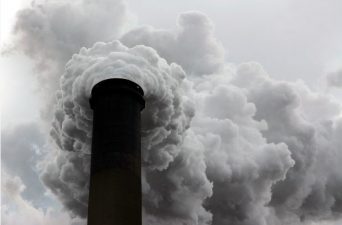 Scientists have always been worried about the runaway effects of climate change. Did anyone think that we might have rising concentrations of cholera-causing bacteria in our oceans as a result of higher temperatures?
Scientists have always been worried about the runaway effects of climate change. Did anyone think that we might have rising concentrations of cholera-causing bacteria in our oceans as a result of higher temperatures?
If rising temperatures on land are enabling bed bugs and drug-resistant diseases to proliferate, it stands to reason that something similar might happen in our oceans. And it is. A 200 page document detailing over 100 EU-funded marine watch projects shows that since the 1980s, there has been an increase in the Vibrio bacteria. Why do we care? Well, in addition to causing food poisoning, gastroenteritis, and septicemia, one genus of Vibrio – namely V. cholera – causes cholera.
The comma bacteria
Scientists began observing Vibrio concentrations in our oceans in the 1960s. They discovered that towards the end of the 1980s, when ocean temperatures began to rise, so too did bacteria.
In their report, the Daily Mail quotes the researchers as being concerned about the economic costs that such changes in our oceans will effect. They are worried that millions of Euros will be wasted on healthcare.
What’s more important than money?
But this report signals something even more important than the financial costs. We tend to think of climate change as being something that will impact future generations, which makes it a lot easier to carry on driving our hummers and eating big juicy burgers, when it is actually a present tense situation.
One contributor to the report, marine scientist Katja Philippart from the Royal Netherlands Institute of Sea Research, told the paper: ‘What was striking to me was the enormous pile of evidence that things are already happening.
Love in the time of cholera
Typically associated with poor sanitation, cholera outbreaks used to occur on a regular basis before the industrial revolution, killing thousands of people at a time, and still occur once in a while in underdeveloped nations. While the real extent of danger is yet unknown, European researchers have demonstrated that climate change, and not lack of hygiene, is increasing the presence of vibrio bacteria in our seafood.
The report was released in advance of the recent Project CLAMER (Climate Change and Marine Ecosystem Research) meeting in Brussels, a collaboration of 17 European marine institutes. Other effects of climate change reported include melting ice, rising sea levels, coastal erosion, increased storm intensity and frequency, acidification, and deoxygenation.
:: Daily Mail
More on the effects of climate change and our oceans:
Book Review: Plastiki, Across the Ocean on Plastic
Can World Oceans Become Extinct?
Ocean Parts Sculptures are a Strange Gift of the Sea
image via Ross Angus



